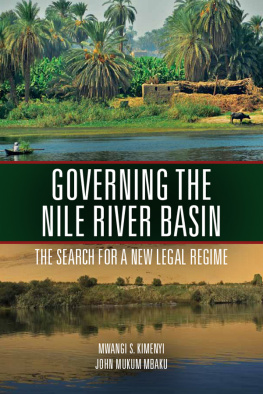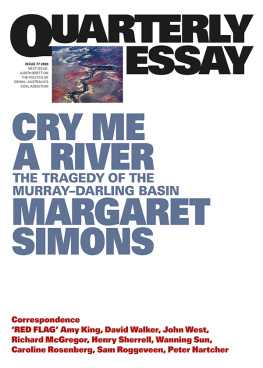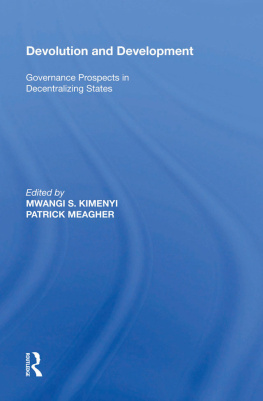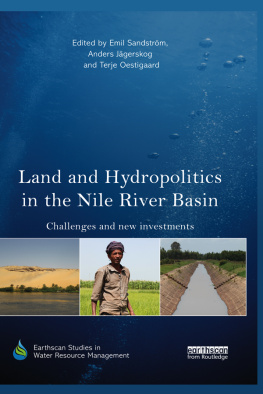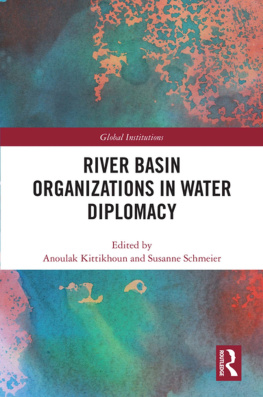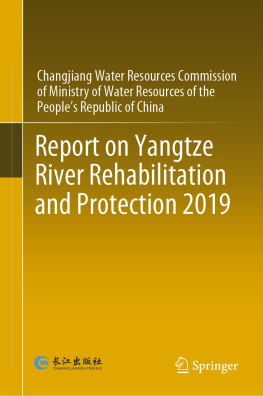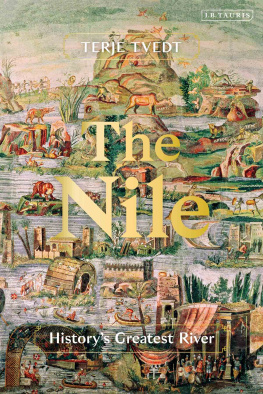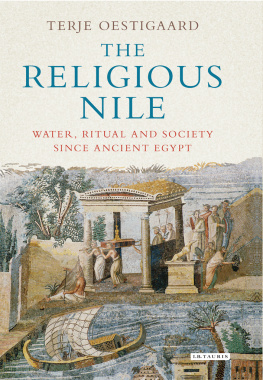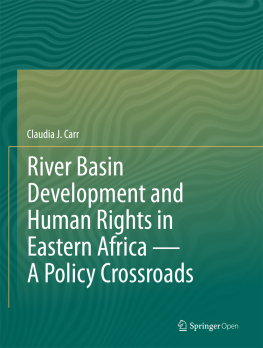Copyright 2015
THE BROOKINGS INSTITUTION
1775 Massachusetts Avenue, N.W., Washington, D.C. 20036
www.brookings.edu
All rights reserved. No part of this publication may be reproduced or transmitted in any form or by any means without permission in writing from the Brookings Institution Press.
The Brookings Institution is a private nonprofit organization devoted to research, education, and publication on important issues of domestic and foreign policy. Its principal purpose is to bring the highest quality independent research and analysis to bear on current and emerging policy problems. Interpretations or conclusions in Brookings publications should be understood to be solely those of the authors.
Library of Congress Cataloging-in-Publication data is available.
ISBN: 978-0-8157-2655-5 (pbk.: alk. paper)
9 8 7 6 5 4 3 2 1
Printed on acid-free paper
Typeset in Minion
Composition by Oakland Street Publishing
Arlington, Va.
| Preface and Acknowledgments |
This monograph deals with an issue that has become increasingly important both for Africa's economic development and for the peaceful coexistence of millions of Africans who reside in the Nile River basin. At the heart of the issue is the efficient and equitable allocation of the waters of the Nile River among the various riparian states. This issue is currently contentious because the basin's legal regime consists of treaties and agreements that are not recognized by all the riparian states. These treaties, collectively referred to as the Nile Waters agreements, grant rights to the utilization of the waters of the Nile River exclusively to Egypt and the Republic of Sudan and hence severely disadvantage other riparian states, a state of affairs that objective observers and analysts agree is not tenable. Given this fact, an alternative framework for the allocation of the Nile River waters is called for. The primary goal of this study is to propose an approach to reaching such a legal framework that is acceptable to all the riparians.
But reaching an agreement on the Nile River waters will be no small feat. Any changes to the allocation of the waters of the Nile River must necessarily involve trade-offswith beneficiaries and losers. Owing to climate change, the amount of water available in the future is likely to be lower than the current volumes, and thus all riparians will need to make adjustments. Because achieving a Pareto allocationone that makes one country better off without making another worse offis not feasible, the goal would be to agree on frameworks that minimize losses and maximize collective benefits to the riparians.
Given the current system of allocation, in which virtually all of the waters of the Nile River are allocated to Egypt and the Republic of Sudan, an opportunity exists for reallocations that would generally increase collective welfare without causing substantial damage to the two countries. From a utilitarian perspective, reducing the amount of water available to Egypt and Sudan by only a small amount and allocating the same to countries that currently do not have access to the water would be associated with overall gains in collective welfare. Basically, the losses to the two downstream countries would be more than outweighed by the gains to the upstream riparian states. In essence, there is a justifiable normative basis to engage in negotiations to create a new legal framework.
Emotions tend to run high when it comes to the waters of the Nile River. On one hand, Egypt and the Republic of Sudan insist that allocation be governed by the Nile Waters agreements, and on the other hand, the upstream riparian states argue that they are not bound by those agreements and that all riparian states should engage in inclusive negotiations to create a new agreement, one that they believe would allow for more equitable and reasonable allocation and utilization of the waters of the Nile River. The dynamics in today's Nile River basin point to an urgent need for a negotiated alternative legal framework for water allocation and use. Continued insistence by Egypt and the Republic of Sudan that the upstream riparian states be severely limited in the way they harvest and utilize the Nile River waters that originate in, or pass through, their territories is not justifiable on either moral or legal grounds. Despite threats of military action by Egypt, Ethiopia has decided to proceed with the construction, on the Blue Nile, of the Grand Ethiopian Renaissance Dam, which is expected to be completed in 2017. Other Nile River riparian states are likely to want to engage in similar projects. The most effective way forward for the basin calls for all countries to work together to design new water-sharing arrangements to ensure equity, fairness, and sustainability.
Although we are critical of the colonial-era Nile Waters agreementswhich we do not consider to be relevant to most of the riparianswe emphasize that our proposed solution is not to overhaul the water-sharing agreements in a manner that disrupts or severely penalizes the livelihoods of the people of Egypt and Sudan. The importance of the Nile River, especially to Egypt, is well recognized, and thus we advocate for a consultative process that protects current beneficiaries while simultaneously increasing the amount of water available to others. Thus though we have at times used relatively strong language to demonstrate the position taken by Egypt as regards proposals to change the legal framework for allocating the waters of the Nile River, this should not be taken to mean that we are anti-Egypt or that we oppose the interests of the Egyptian people. However, we emphasize that Egypt must change its position to accommodate the views of other riparians and also to appreciate their development needs.
In preparing this monograph, we have received helpful comments and suggestions from colleagues and external reviewers. We wish to thank John MacArthur of the Brookings Institution and Robert Adler, dean of the S. J. Quinney College of Law, University of Utah, and Marc A. Levy, Center for International Earth Science Information Network, Columbia University, for insightful and useful comments and suggestions. We have attempted to address many of the suggestions that the reviewers provided. This process has significantly improved the study by clarifying a number of issues.
However, owing to the intended specific focus of the study, there were many important suggestions that we did not incorporate in the study. Reviewers, for example, proposed that we should provide detailed discussion of the hydrology of the Nile, the historical uses of the Nile waters, and more in-depth discussion about other transboundary water agreements. For this study, we have opted to focus primarily on the legal framework governing the allocation of waters of the Nile River, which is the contentious issue that we believe demands urgent attention. Many of the various issues raised by the reviewers have already been covered by experts in the respective areas.

